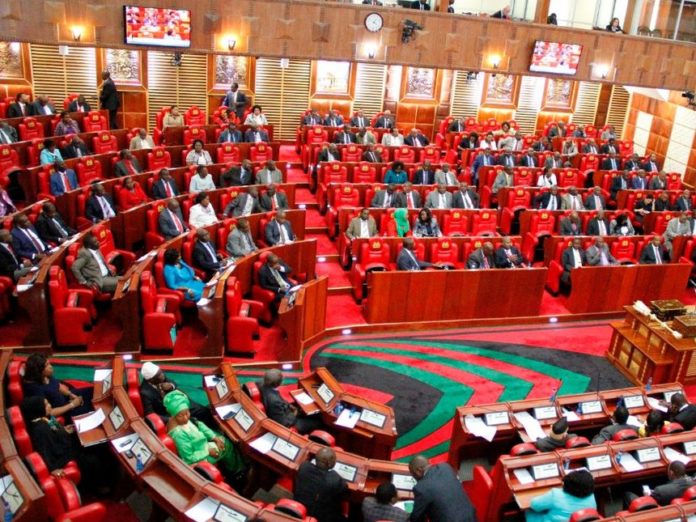EFFECT OF THE TAX LAWS (AMENDMENT) BILL 2020 ON MSMEs IN KENYA
A Bill cited as the Tax Laws (Amendment) Bill, 2020 was introduced into the National Assembly and will come into operation once enacted by parliament and assented to by the President.
The Bill seeks to amend various tax related statutes namely the Income Tax Act (Cap. 470), the Value Added Tax Act, 2013 (No. 35 of 2013), the Excise Duty Act, 2015 (No. 23 of 2015), the Tax Procedures Act, 2015 (no. 29 of 2015), the miscellaneous Fees and Levies act, 2016 (No. 29 of 2016) and the Kenya Revenue authority Act, 1995 (No. 2 of 1995).
In this article, I want us to discuss some of the proposed tax measures and their effect on micro, small and medium sized enterprises (MSMEs). It’s important to note that not all the measures have a direct effect on the operations of MSMEs. For example, the proposal to reduce Pay As You Earn (PAYE) top band from 30% to 25% and increase the non-taxable pay to Kshs 24,000 and increase the personal relief from Kshs 16,896 to Kshs 28,800 have no effect on MSMEs. This is because the benefits are transferred to the employees, but the payroll costs of the companies remain the same.
There is a proposed reduction of the corporation tax rate from the current 30% to 25% (Although the new rate has not been included in the bill as published, I presume this is an error to be corrected at the parliamentary stage). This is a welcome move for MSMEs because the amount of tax they pay to KRA on their profits is reduced significantly by the proposal.
In effect, this translates to more retained earnings for the business than can be reinvested for growth. Although it’s expected that most MSMEs may report reduced profits or even losses in this year resulting from the effects of the pandemic, a reduced tax rate is a relief for those that will manage profits.
9 Things You Can Do While Hiding Out From COVID-19
Turnover tax (TOT) was reintroduced by the Finance Act 2019 and was to be payable from January 2020 at a rate of 3% of gross sales. This is a final tax payable monthly on or before 20th of the subsequent month. It was not applicable to limited liability companies, employment income, rental income, management and professional services and businesses that were registered for VAT at the threshold of the Kshs. 5 million. The new law proposes to change a few things with respect to TOT. First, the rate was reduced from 3% to 1%. This is a very good measure targeted at MSMEs as it reduces their tax liability significantly.
Secondly, the Bill seeks to extend the turnover tax provisions to persons with annual turnover between Kshs 500,000 and Kshs 50 million (from the current upper limit of Kshs 5million). Thirdly, it has also proposed to remove the limitations for limited liability companies and earners of rental and professional income to be taxed under TOT.
Lastly, it reduces the late submission penalty for TOT from Kshs 5,000 to Kshs 1,000. These proposals have a significant effect on MSMEs as many of them can enjoy the increased space of limited liability companies making turnover of up to Kshs 50 million falling into the bracket of TOT and only paying 1% of gross sales as final tax.
VAT has been reduced from 16% to 14%. This is beneficial to the MSMEs because it should ideally reduce the prices of their goods and services to their customers, a welcome idea during this difficult time. It should also reduce the costs of the goods and services they procure for their business easing on their costs of sales and operating expenses.
The removal of the presumptive tax of 15% of the single business permit fee is also a welcome move. Because of the introduction of the lower limit of Kshs. 500,000 for TOT, it means that businesses with gross sales below Kshs. 500,000 do not have to pay any taxes at all. There’s an introduction of investment allowance for hospital buildings. This incentive will encourage investment in the healthcare sector and MSMEs can benefit from this incentive.
However, it’s not all positive as the bill has many measures that will have adverse effects on MSMEs. Transfer of private residence regardless of the period for which it was held prior to transfer will be subject to capital gains tax. In addition, the transfer of land whose value is less than Kshs. 3 million and agricultural land that is less than 50 acres and is situated outside a gazette township will also be subject to tax. This may affect MSMEs because in the event of depleted cash flows and in order to save businesses during this difficult time, many entrepreneurs may result to sell off their assets which is now being subjected to capital gains tax.
The 15% tax rate for companies operating a plastic recycling plant which was introduced last year has been removed. The incentive was introduced last year to encourage plastic recycling as a means to save the environment and was given for five years. This removal now means any MSMEs who would have invested in plastic recycling plants will no longer enjoy the benefit of reduced tax rates and will be taxed at 25% (revised rate). Because this benefit was introduced less than a year ago, its removal points to an unstable tax environment in the country that may prove unconducive for entrepreneurs.
7 steps to overcome COVID-19 business disruption
Some expenses which were previously allowed as deductible expenses are now disallowed as deductible expenses against taxable profit thereby increasing the tax payable by companies that previously enjoyed them. For example, a 30% electricity rebate which was an incentive for the manufacturing sector is now removed; Legal and other costs, including expenditure on rating, incurred on the issue of shares or debentures to the public and listing on a securities exchange; subscriptions to trade associations and club subscriptions paid by an employer on behalf of an employee; and expenditure on the construction of a public school, hospital, road or any other similar social infrastructure.
The classification of tractors, fertilizers and agricultural pest control products as items subject to VAT will have a significant impact on MSMEs operating in the agricultural sector as the costs of production will increase. The reclassification of medicaments and products like milk and bread from zero rated to exempt will also affect pricing as companies cannot claim input VAT related to these products thereby transferring the costs to the consumers.
The bill has proposed to include excise duty, fees and other charges in computing the taxable value for fuel and has introduced VAT on Liquid Petroleum Gas (LPG). This move will increase the cost of fuel and LPG. The introduction of VAT on tourism facilities including parks fees, services of tour operators and taxable goods used in the construction of tourism facilities will adversely affect the tourism industry and MSMEs that operate in that industry.
Transfer of business as a going concern by a registered person to another registered person is now subject to VAT. Investment in new businesses and restructuring of companies will be affected by this move as the amount payable in VAT at the beginning may be significant.
Author









